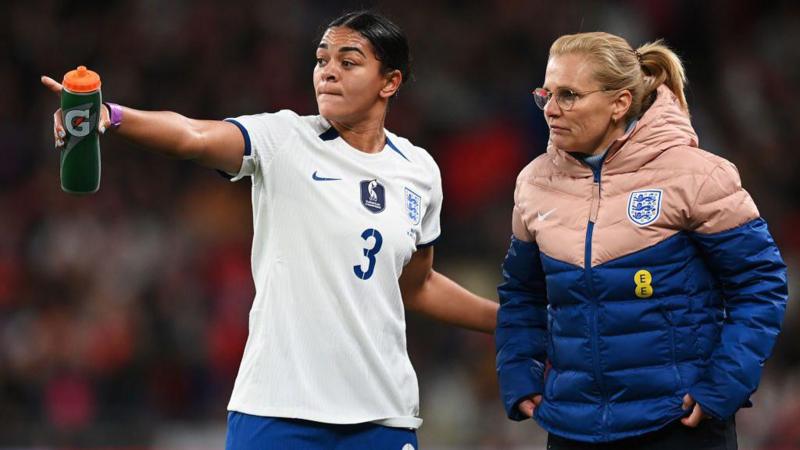Wiegman Critiques 'Taking the Knee' Approach in Powerful Statement




When England's women's football team takes the field these days, there's a notable change in their pre-match ritual. The players, after thoughtful consideration, have decided to move away from taking the knee - a gesture that gained global prominence as a sign of protest against racial injustice. This decision sheds light on an ongoing dialogue within sports about the effectiveness and evolution of symbolic gestures in the fight against racism.
Sarina Wiegman, the current manager of England's women's team, articulated that the decision came directly from the players, indicating a group consensus that the gesture's impact was "not good enough.” This perspective underscores a broader sentiment felt by many athletes around the world—that while symbolic gestures raise awareness, they must lead to concrete actions and changes to be truly transformative.
The practice of taking the knee began in American football with Colin Kaepernick in 2016 and quickly spread to other sports, including football, as players knelt before games to highlight and protest racial inequality and police brutality. But as the gesture became more widespread, a debate emerged about its long-term efficacy and reception by the public.
Some critics argue that the act has become diluted or co-opted over time, losing its sharpness and becoming more of a pre-game formality rather than a catalyst for change. Others suggest that as the initial shock value fades, the real work involves more sustained and complex campaigning against racism, which goes far beyond a pre-match routine.
England's decision echoes a sentiment that many in the sports and sociopolitical spheres are arriving at: it is time for the baton to be passed from symbolic gestures to actionable policies and practices. Wiegman’s players are signaling they're ready to be part of that next phase.
The decision doesn’t come in a vacuum. In the past few years, England’s football scene, especially women’s football, has seen substantial growth, not just in popularity but in its social influence. The players have become increasingly aware of their platform and are keen on using it responsibly and effectively. By choosing to forego taking the knee, they aren't showing any less commitment to anti-racism. Rather, they are advocating for progress in ways they find more impactful.
Wiegman’s leadership also reflects this shift in perspective. Known for her strategic acumen, she understands the importance of her team's voice in societal matters. Since her appointment, she has been supportive of her players' advocacy, empowering them to lead on and off the field. This move could very well prompt discussions about new forms of engagement with social issues, spearheaded by an informed and proactive squad.
The question of what comes next after forgoing the knee is vital. It involves figuring out other forms of activism and channels through which sport can influence society positively. The team could engage more deeply with communities, work in tandem with existing anti-racism organizations, or even influence systemic changes within the sport's governing bodies.
Moreover, as hosts of the upcoming UEFA Women’s Euro 2022, the England team has a timely spotlight. The tournament offers a unique stage not just to showcase their sporting excellence but also to amplify their advocacy for racial equality in new and perhaps more profound ways.
As this new chapter in sports activism unfolds, it will be interesting to observe how other teams and sports disciplines respond. Will they continue the gesture, adapt it, or find new methods to support their causes? England's women’s football team has passed the baton, signaling a readiness to evolve how athletes engage with social issues. How this influences the broader sports community remains to be seen, but it certainly sets the stage for innovative approaches to activism in sports.